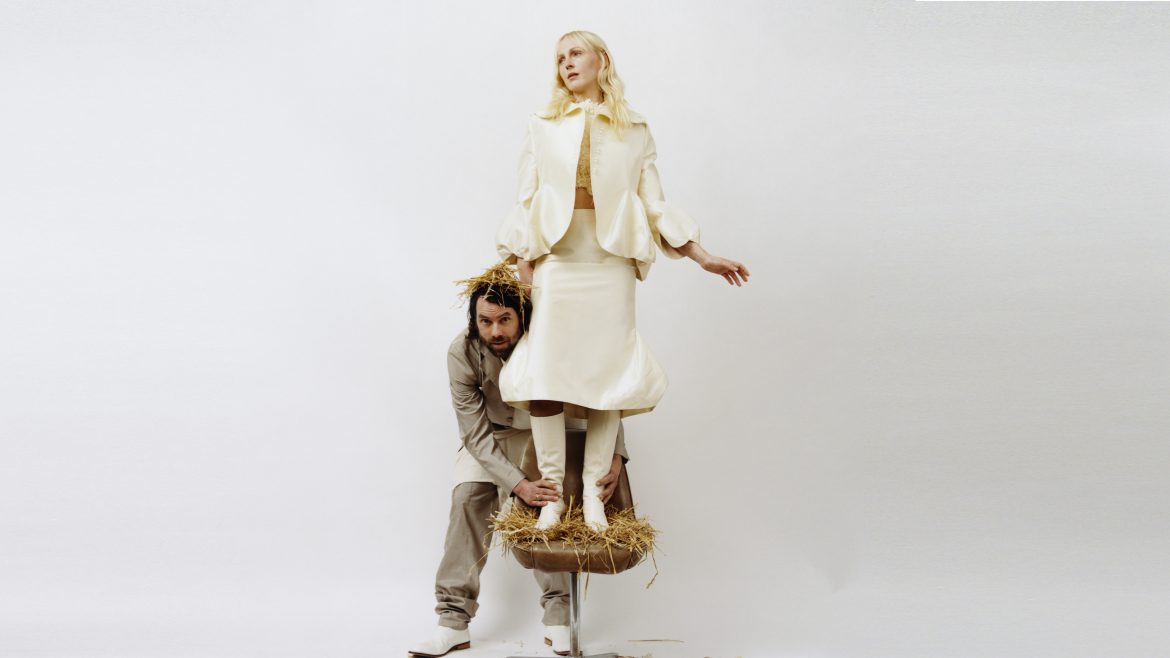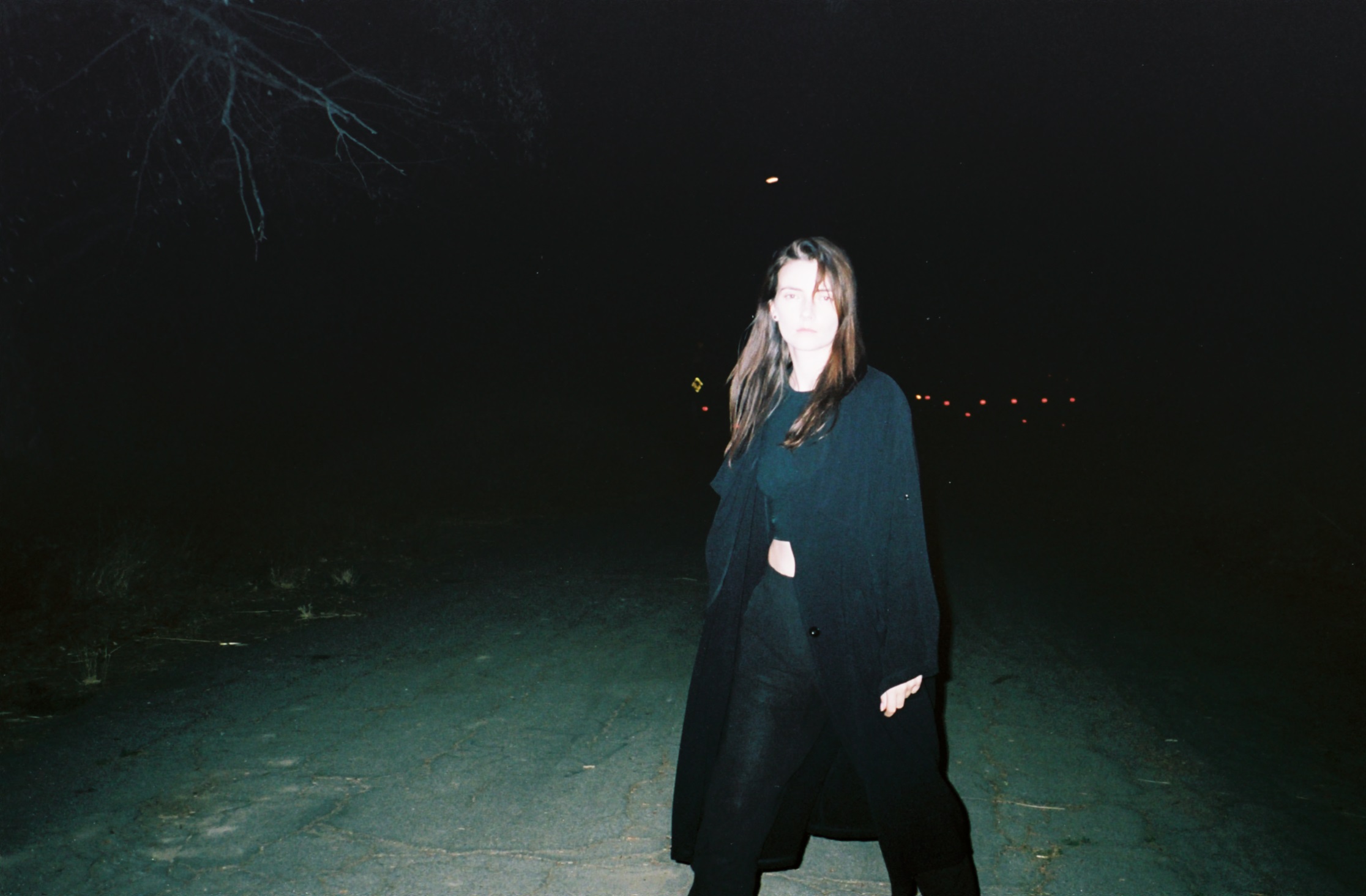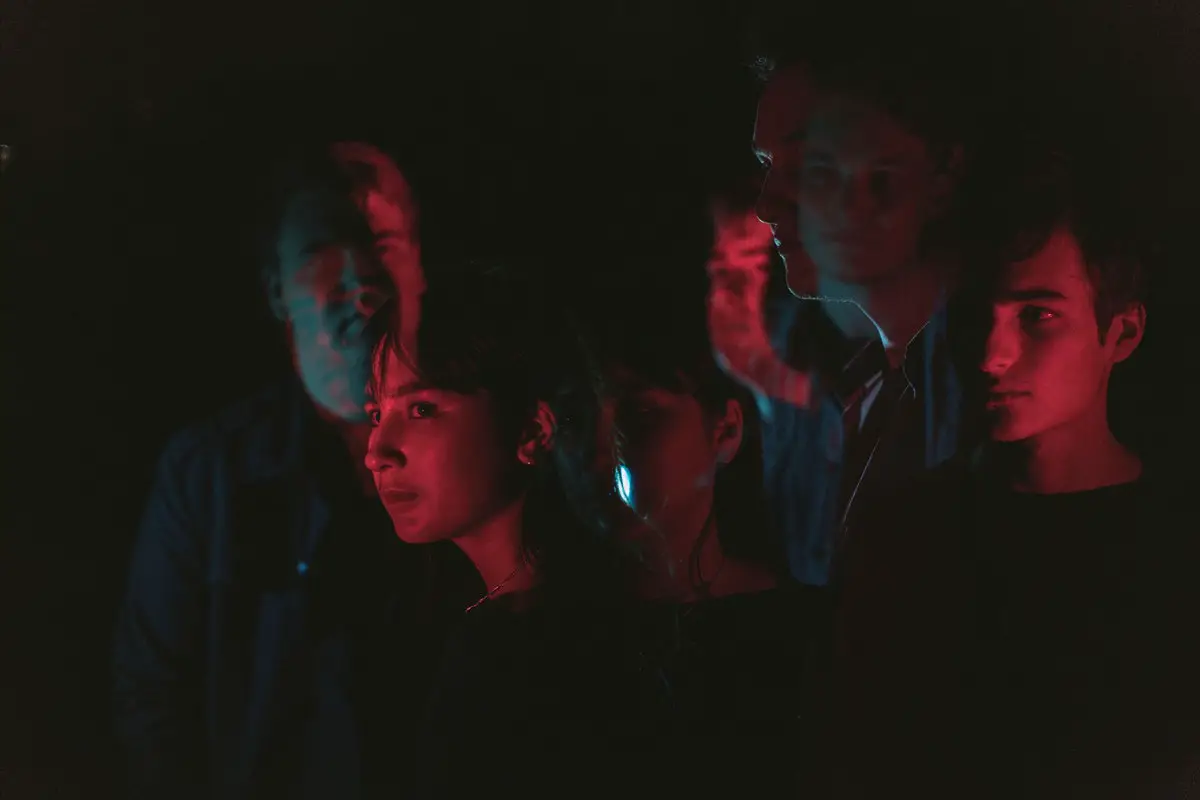Laura Marling and Mike Lindsay’s sophomore record as LUMP is spare and psychedelic, with an undeniably strong sense of collaboration.
Stream: ‘Animal’ – LUMP
LUMP is like a Rorschach test.
When Laura Marling and Mike Lindsay released their debut single as LUMP in 2018, “Curse of the Contemporary,” it was with ambiguity and more than a little veiled mystique. The song’s accompanying music video featured a Where the Wild Things Are-esque monster, dancing alone in a darkened room. The same monster graced the album’s cover, and the album rollout included few images of Marling and Lindsay themselves. For two musicians who felt very locked into their own separate arenas, LUMP was freedom. Marling and Lindsay, both award-winning musicians in their own right, looked at LUMP as a “third character in the band” — an avatar for their new experiment. But Animal (out July 30, 2021 via Partisan Records) is different: though LUMP itself is still present, Marling and Lindsay are front and center.

Animal is an album of juxtapositions. Concerned with ancientness, human behavior, and dreams, it also resists taking itself too seriously. Lindsay’s production is full of strange, almost humorous textures, while Marling delivers absurdist lyrics in an uncharacteristic deadpan. Standout tracks like “Gamma Ray” and “We Cannot Resist” provide catchy beats and upbeat melodies, while quieter moments like “Red Snakes” and “Oberon” exude an intimate sincerity.
Stood in a pool full of red snakes
Up to your knees in a night lake
Unsure if you knew what was at stake
Fully prepared for a tough break
Marling, who has been doing coursework in psychoanalysis, found joy in writing from a Jungian perspective, while also pulling from favorite poets like Rainer Maria Rilke. Lindsay, relying heavily on the same Eventide H949 Harmonizer that David Bowie used, created surreal soundscapes for Marling to play around in.
The album itself is treated almost like a film, with Marling announcing credits at the end of the final track. Oddly enough, it creates even more of an atmosphere of mystery — what did you, as the listener, just experience exactly? Though divorced from both of their main projects, Animal is an album that seemingly only the two of them could make. It is musically sophisticated yet spare, psychedelic yet haunting, and completely unique. Atwood spoke to LUMP about surrealism, the unconscious, and snakes.
— —
:: stream/purchase Animal here ::

A CONVERSATION WITH LUMP
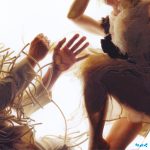
Atwood Magazine: When you first came together for this project, what was the impetus? How did the concept come about?
Mike Lindsay: When we first got together, there was no concept. I think it was just an idea. We’d met through a friend who plays in Laura’s band. I’d been a fan of Laura for years and felt bold enough to ask if she wanted to make some music, and [she] said yes. There was no plan, I just wanted to try and do something. After that first day, when we did the first song on the first album, we realized there was something special. We had to nurture the beast, which we did. And while doing that, it became a bigger project than we imagined. It has a unique flavor to it and I’m not quite sure what it is. But there’s something there. So we’ve done another one.
Is LUMP an entity in itself? There’s that character on the cover of the first album.
Laura Marling: The little mascot, yeah. When we finished making the first one, my goddaughter, who named the band, was, like, eight or something. We had just finished the album and I said to her, “What would you call a new band?” and she went, “LUMP!” Like, she screamed it. It was so perfectly silly and childish. It also felt appropriate to come up with a name that was greater than the sum of our parts, to sort of represent the band. I’d never worked with somebody in such a strong duo and I’ve never had to compromise and make decisions for people — [laughs] I still don’t. [The name] has turned out to be a bit of a blessing and a curse because it’s great to have something that represents the persona of the band, particularly when we play live. But I also think it trips people up; they don’t really understand what it is.
Is there something concrete that it symbolizes for you?
Laura Marling: For me it does. I’m very interested in psychoanalysis. I’m studying at the moment. The idea of a physical representation of the wonky, nonlinear unconscious — various psychoanalysts have tried to theorize it in different ways, but Jung had the animus and the anima — I think LUMP is supposed to represent that. The lyrics work like that as well. The first album’s lyrics were all based on nonsense poetry and surrealism, you know, it’s not really supposed to make sense, but it does. The second album is the same.
Mike Lindsay: It’s great to have a third character in the band, and it allows us to escape into LUMP world every now and then when we get a bit unsure of our own world. It’s been really good for writing to imagine this parallel universe that might have this set of sounds and a journey attached to it that is not relevant to Laura’s and my daily routines. It can dictate certain writing techniques or sounds or something you wouldn’t normally write for another band.
From a production standpoint, this sound is so removed from your solo work, Laura. But this is a bit more in your wheelhouse, Mike. Were there conversations you had about the different textures and timbres you wanted to have on the album?
Mike Lindsay: Only been between myself and LUMP. The way it sort of worked on the first record, and we continue to use these methods, would be that Laura would arrive in the studio, hear what I’ve come up with for the first time, and then try and react to that. We tried to capture that energy and that spontaneity. We didn’t talk about it, and we don’t really, but we might in the future. Part of the joy of our collaboration is finding the balance between music and vocals, and where lyrics and poetry meet textures.
It’s funny, when I was reading these lyrics without listening to the music, it almost felt like I was reading medieval poetry or something. Laura, you’ve always struck me as such an incredibly meticulous lyricist. Are there writers of prose or poetry that you find sort of sit on your shoulder as you’re writing your own music?
Laura Marling: This is a question I always dream about being asked [laughs]. There are lots. I mean, particularly, there’s a song on the album called “Red Snakes” that’s the easiest link to make. It’s kind of paralleled with a Rilke poem about the mount of ancient grief. I’ve always loved Rilke. He has a particular talent that I think is better suited to something like LUMP than something like my own work, because he uses really vague imagery that somehow sharpens an image. I really value that skill in poetry. What I really don’t like in poetry or literature is things that are on the nose, and describe an event exactly as it was. That doesn’t stir anything underneath the surface level to me.
Were these moments of surrealism on the album things you both talked about beforehand or were they coming more directly from you?
Laura Marling: All I do all day is underline things in books that I think are funny, interesting, or are well structured sentences. So when I came to record the previous time, I had been mostly focused on surrealist poetry and art and nonsense poetry, which is very rich for those sorts of things. This time, [my source] was psychoanalysis, which is also really rich, because psychoanalysis takes itself incredibly seriously – so there’s a lot of unintentionally funny, overly sincere stuff. But then there was the odd occasion where Mike would have to interject because it was the wrong notebook. You know, it’s like from the Laura Marling notebook rather than the LUMP notebook. And he’s very on it [laughs].
I can see that sense of humor woven into this music. Is there a part of the record that’s not meant to be taken so seriously?
Laura Marling: Yeah. Well, it’s all supposed to be not particularly serious. But I mean, I think some things are. “Red Snakes” is in the middle of the record, and that’s very sincere. [The album] doesn’t need more than one sincere song in it.
Mike Lindsay: You’ve got “Oberon,” which is also quite sincere. But in sort of a theatrical sense, I suppose.
Laura Marling: With “Oberon” actually, somebody asked us in an interview if that was about deadnames, which is totally coincidental.
Mike Lindsay: Wow. It’s interesting what people read in, isn’t it? I think that’s the good side of writing music like this. You can take it into a certain direction of humor and twisted oddness, not taking itself too seriously. But then within that you can find darkness or something altogether poignant for the times. Not being obvious, I think, is the key.
I think my favorite song on the record is “Paradise,” which has such a juxtaposition between the very magisterial lyrics and the wonky production sounds. Mike, were there moments where you were very intentional about matching a lyric with a certain sound?
Mike Lindsay: Well, the lyrics would always come after the sound, but then they’ll be bits of production when everything was in place, and I would highlight certain certain things with mnemonic little twangs and such, but things were mostly in place. Laura kind of reacts to that and juxtaposes it, whether subconsciously or not, with her reaction.
But I’m pleased it comes across like that. I think that’s how it does work with our musical relationship, is that [the music and lyrics] do sort of fight each other and then find that middle ground. But I’m always a fan of the odd, wonky bloop [laughs]
Animal is somewhat of a departure in sound from your first album as LUMP. There’s something a little more stark or even distanced about the vocals and production. Can you talk about this?
Laura Marling: That’s very well observed — I mean, that’s part of Mike’s production. He tells me what voice he wants me to use, so I think that’s part of Mike’s sense of intentional production style.
Mike Lindsay: There’s part of your Laura Marling persona, as you sometimes call it, that has a voice and then there was part of a LUMP voice. I love your Laura Marling voice. We talked about this the other day, and you thought that I didn’t like the vibrato, but that is incorrect. I love it, and there’s actually quite a lot of it on the first record, but somehow with this one we went more deadpan. The music’s making up for the vibrato, but it seemed to be right to be more English and British and straight up at the time.
Laura Marling: Post-Brexit, obviously [laughs].
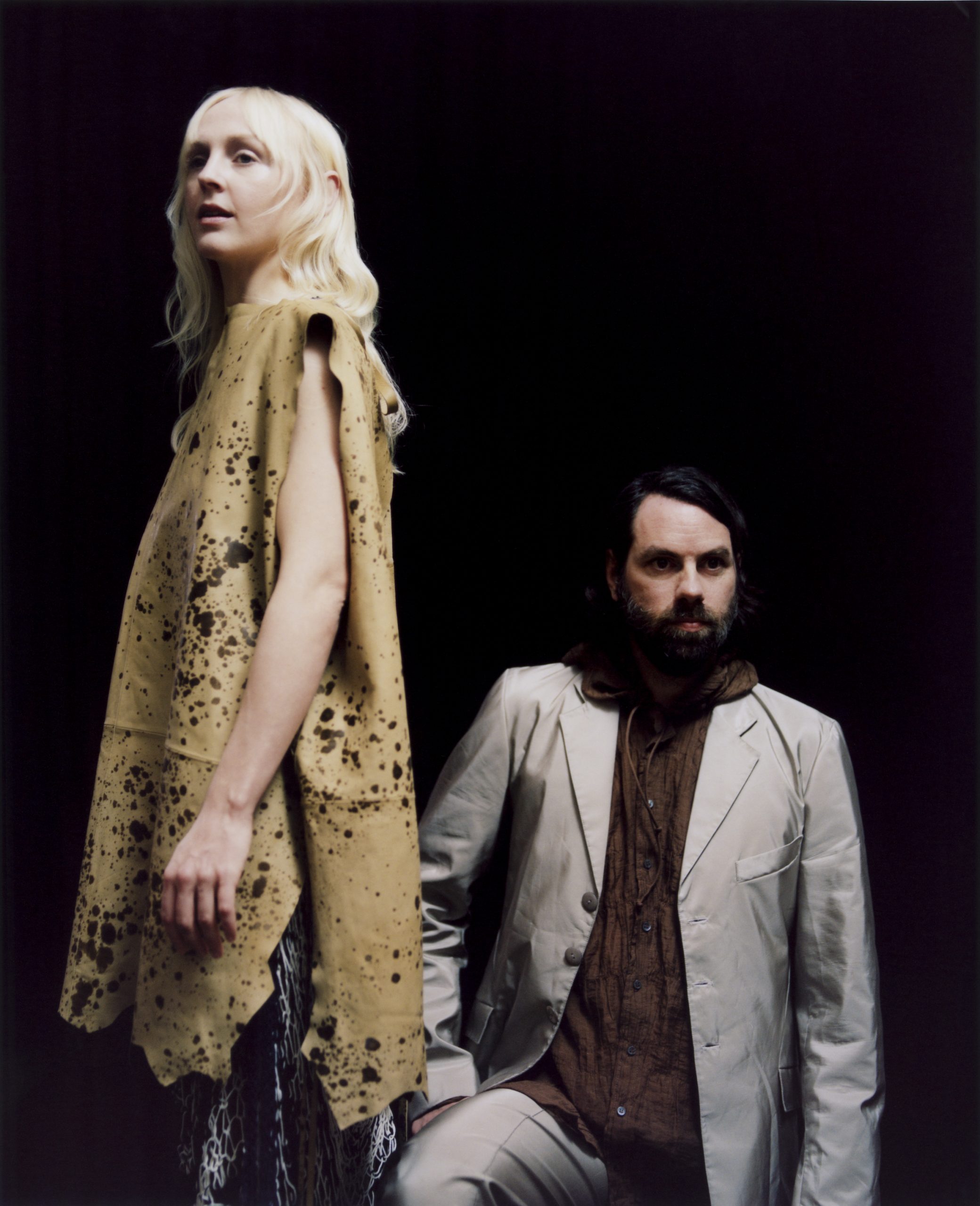
A lot of these songs are sung in second person or seem to be from the perspective of someone observing another person; is that stemming from your psychoanalysis studies as well?
Laura Marling: Yeah, exactly. It’s intentional, to [write] as if you’re observing the thoughts as they’re coming up from someone else. At the beginning of writing, I was also a bit fixated on this new dimension that people have. This is being talked about quite a lot in psychoanalysis right now: a lot has to be re-theorized now that people have another presence in the world, an online presence, that starts to affect their behaviors and how they interact with the world. I am incredibly resentful of that dimension. My life feels complicated enough for me without having to [engage in] it. I don’t feel like that now, but when we were making the record, I felt very resentful of these people intentionally creating another dimension for themselves. I’m not sure where I’m going with that, but that’s what I was thinking about a lot and creating that kind of distanced, lack of intimate feeling.
Laura Marling: That’s another sort of Jungian thing, everything being tied to an ancient origin somehow. I think I use “ancient” in “Paradise” and in “Red Snakes.” “Ancient” comes up a lot in psychoanalytic imagery. The Freudian gang aren’t interested in it, but the Lacanian and the Jungian folks do buy into these eternal images that keep cropping up. “Red Snakes” is about a dream that I had regularly about seeing my mother in a pool of water, surrounded by little red snakes. Jung used to do these spectacular paintings, and at the base level they represent different levels of the unconscious. Frequently, the underlying level is a snake. It’s a very common image, so we must have some ancient relationship to that image. Mike Lindsay: I consciously decided on the production side to try and not use acoustic things that are very obviously related to both Laura’s main project and Tunng, which started out as a twisted, acoustic kind of wonk band. It’s always a good thing, to pare things down and work with what’s left, from a musical point of view. Laura Marling: I make a very conscious effort to do it differently. I also just like being used – I mean, not in an everyday sense, but when we first started working together, [Mike] knew what aspect of my voice [he] liked, and it’s a relief for me to be heavily directed in that sense. Mike Lindsay: Over to you, Laura. Laura Marling: Oh, is this my area? [laughs] It came up in conversation when we were talking about how to represent LUMP, that LUMP is like a Rorschach test. Seeing what people find reflected in the lyrics and what kind of stories they make from essentially nothing is really interesting to me. The people that related to the first album were a lot of people who didn’t know my music, and it was interesting to meet very different people who related to the LUMP lyrics. It tracks a different breed of relationship to the song. — — — —
There are several references to ancientness on this record. What is Animal’s relationship to ancientness? The name itself carries some of that already.
Is there anything from each of your own music that you consciously bring into LUMP? Or do you kind of purposely shed those parts of yourself?
If Animal had a thesis, what would it be?

Connect to LUMP on
Facebook, Twitter, InstagramDiscover new music on Atwood Magazine
? © Steph Wilson
:: Stream LUMP ::

